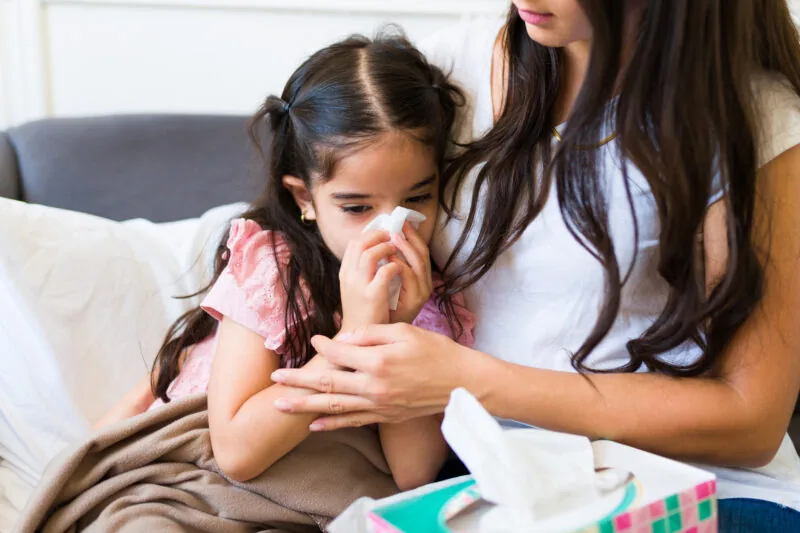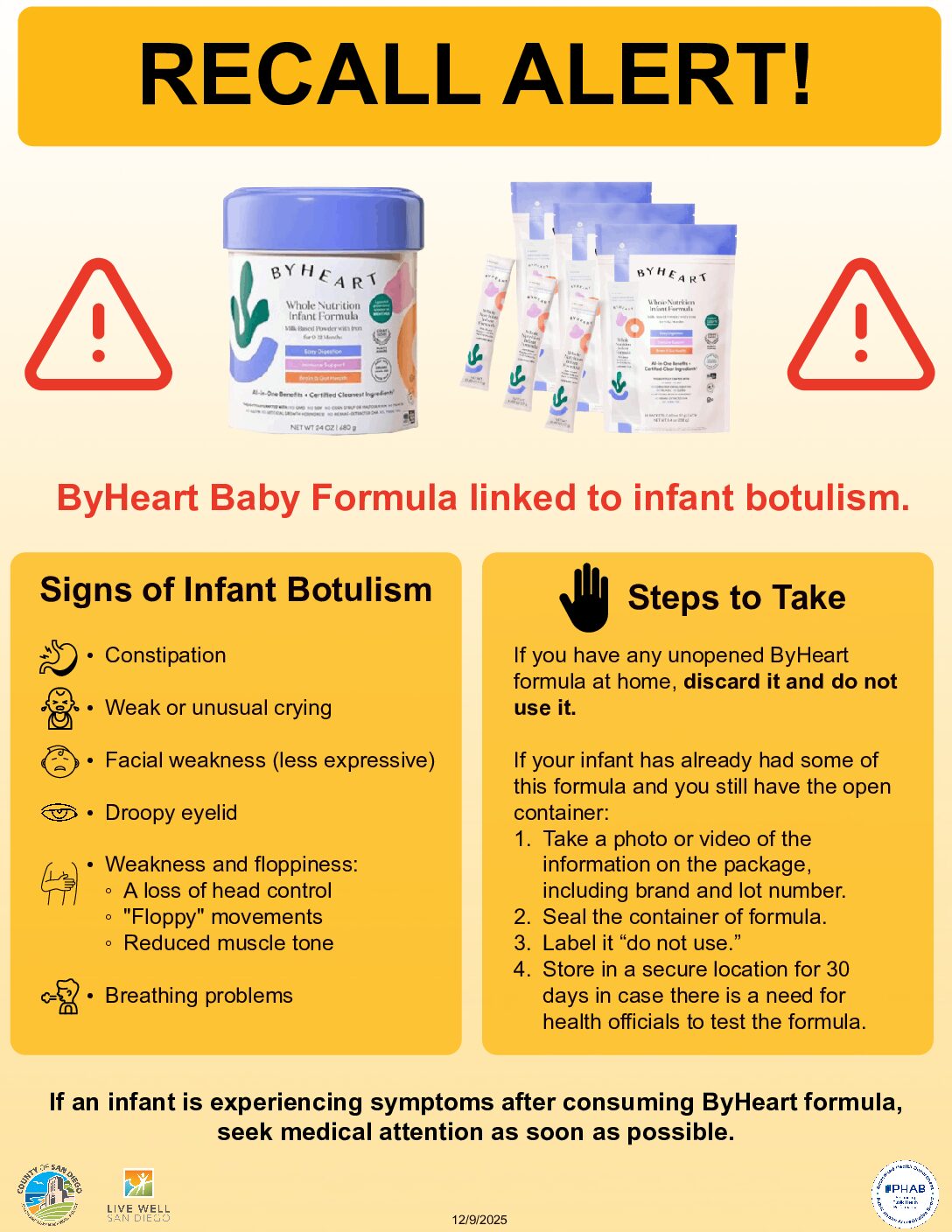SIX REASONS WHY MARIJUANA AND KIDS DON’T MIX
Even though marijuana may be legal for adults, it is not safe for children and teens. Young brains are still growing, and using marijuana can cause real problems. Here are
Continue ReadingManaging Upper Respiratory Infections in Babies, Toddlers, and Teens
As parents, few things are more worrying than hearing your child cough, sniffle, or struggle to breathe easily. Upper respiratory infections (URIs) – including the common cold, sinus infections, and
Continue ReadingThree Tips to Strengthen Your Relationship With Your Child
Building a strong bond with your child doesn’t mean doing everything perfectly or planning big activities. Most bonding happens in everyday moments – when kids feel listened to, cared for,
Continue ReadingINFANT FORMULA RECALL DUE TO BOTULISM
ByHeart infant formula has been recalled due to contamination with Clostridium botulinum, the bacteria that causes infant botulism. This infection is typically spread to infants via food items like honey.
Continue ReadingFIVE TIPS TO HELP PREVENT SUDDEN INFANT DEATH SYNDROME (SIDS)
Sudden Infant Death Syndrome (SIDS) refers to the unexplained, sudden death of an otherwise healthy baby during sleep. Though the exact cause remains unknown, there are proven strategies to help
Continue ReadingPOPULATION HEALTH INITIATIVES AT CPCMG
At CPCMG, our Population Health team works behind the scenes to support your family and your provider in delivering higher-quality, more comprehensive, and more efficient care. Although you won’t see
Continue Reading9 Common Asthma Triggers in Children—And How to Manage Them
Asthma is the most common chronic condition among children worldwide. In the U.S., about one in ten children lives with asthma. While there’s no cure, asthma can be managed with
Continue ReadingWhy You Shouldn’t Take Health Advice from Social Media Influencers
In today’s digital world, it’s very easy for parents to turn to social media to find quick answers about their child’s health. Digital influencers with large followings often share parenting
Continue ReadingASK THE PEDIATRICIAN: Should I worry if my child doesn’t poop every day?
As a pediatrician, a common concern parents share with me is about their child’s bowel movements. While constipation may seem like a straightforward issue, it can look different for every
Continue ReadingASK THE CPCMG PEDIATRICIAN: What is whooping cough?
Whooping cough, also known as pertussis, is a highly contagious respiratory disease. Despite the availability of vaccines, cases still occur and can lead to serious complications, especially for infants (who
Continue Reading









